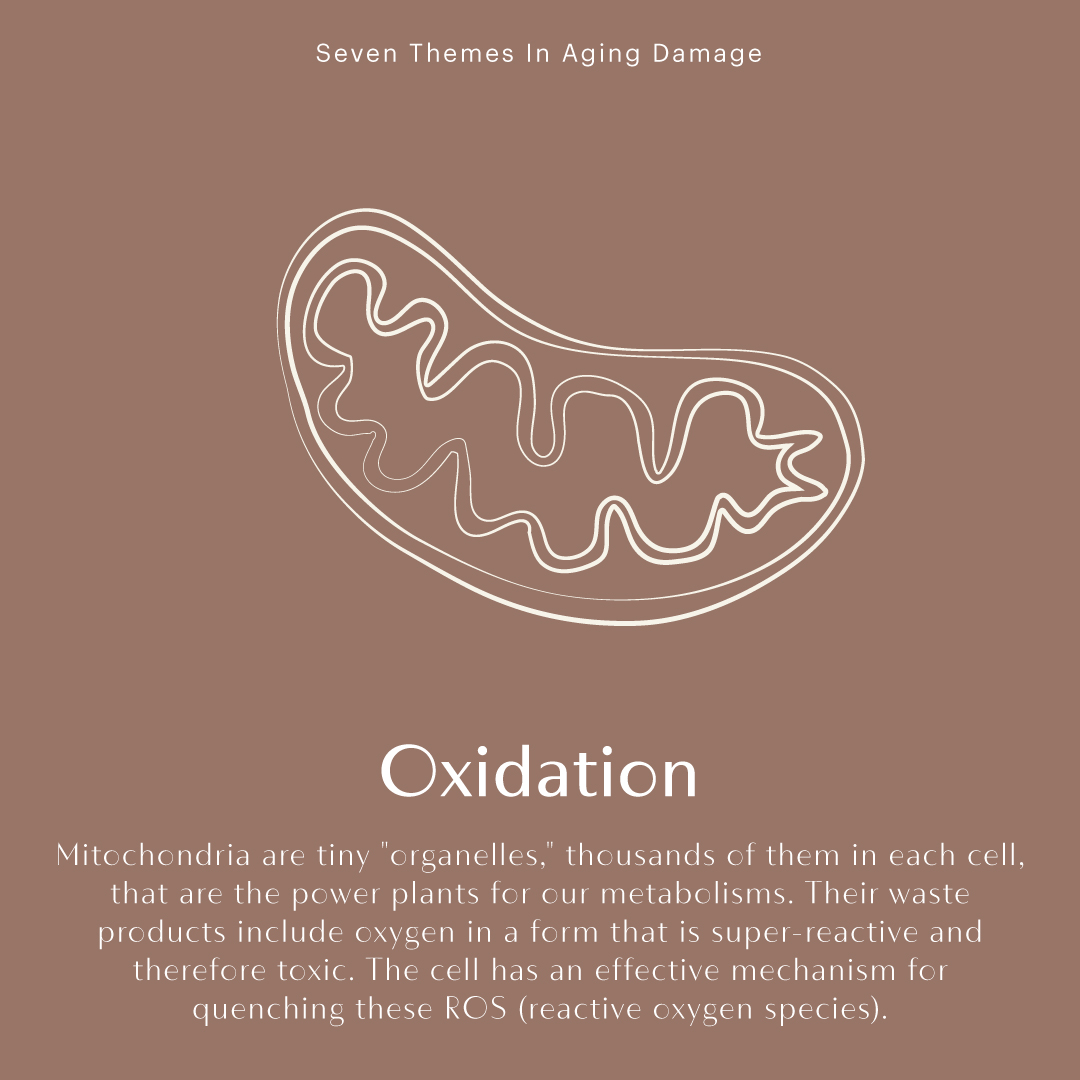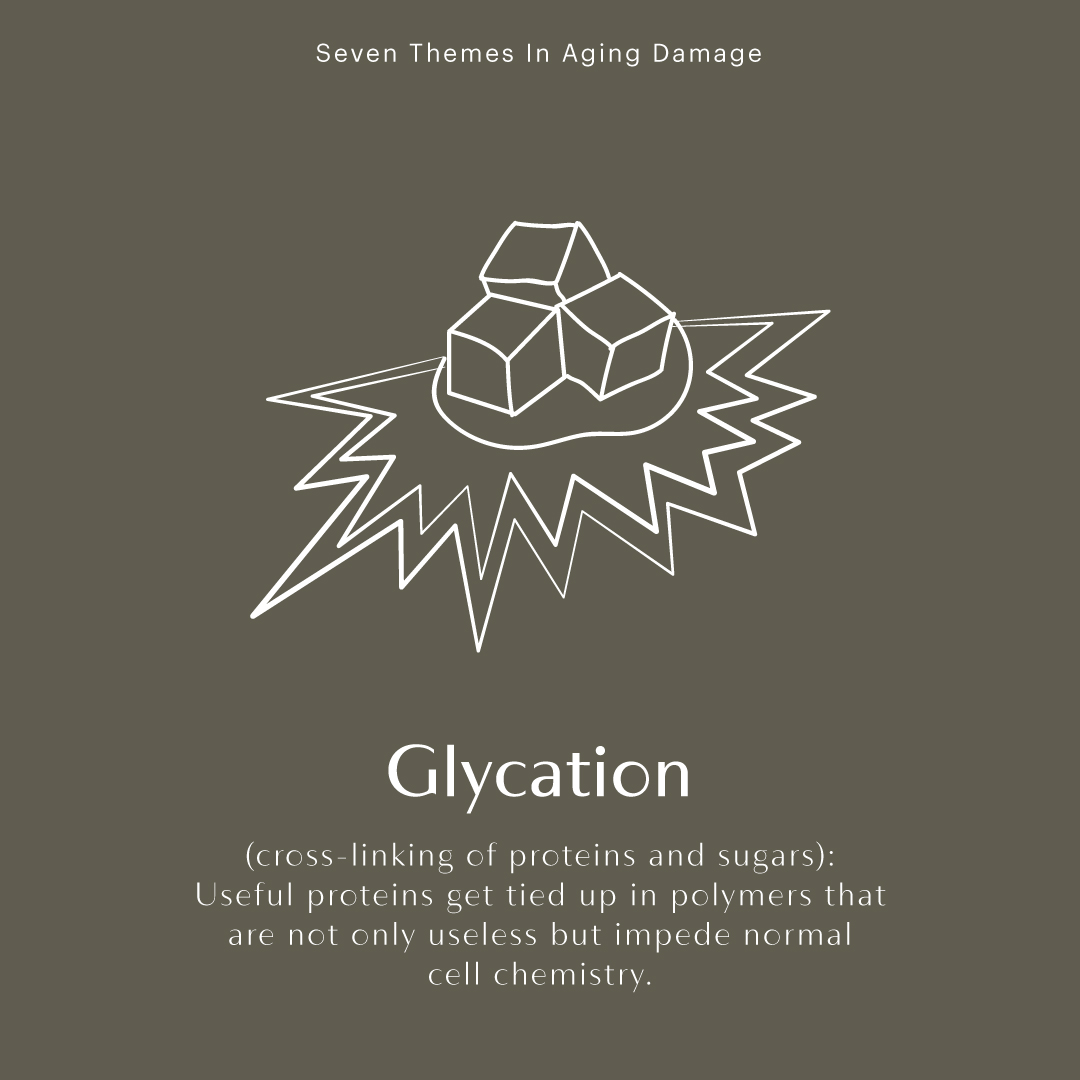In my previous article, I noted that our body’s biological system is influenced by our genetics. In fact - science proves that 80% of our health state is from the daily choices and our direct environment. The other 20% is hard coded. This should come a a great relief (and a little pressure of course).
Why does our skin ages and what we can do about it?
Aging occurs because of two different factors: intrinsic and extrinsic. You don't have much control over intrinsic factors, which are influenced by your genes, ethnicity, and certain medical conditions. But there is a major upside because you can have a huge impact on your extrinsic factors like UV exposure, stress, smoking, nutrition and lifestyle choices, which are major contributors to the aging process.
How do these extrinsic factors contribute to aging? All of them can generate the trifecta of reactions that create fines lines, wrinkles, and skin sag: oxidation, inflammation, and glycation. When you combine these three things, you hit the jackpot for premature aging.
Below we get one to one on terminology, how it affects our fundamental biology, and how to integrate lifestyle and nutritional habits to assist healthy aging and brighter skin.
Oxidation
Mitochondria are tiny "organelles," thousands of them in each cell, that are the power plants for our metabolisms. Their waste products include oxygen in a form that is super-reactive and therefore toxic. The cell has an effective mechanism for quenching these ROS (reactive oxygen species).
Insulin chemistry
The body gradually loses its ability to respond to insulin, and poisons itself with excess blood sugar.
All the food you eat gets converted into glucose, which is the simplest form of sugar that your body can use for energy. Foods containing more sugar—think packaged cereal, crackers, sauces as well as foods that are more readily converted into sugar like refined carbohydrates—can flood your system with glucose.
Glycation (cross-linking of proteins and sugars)
Skin + Glycation
When sugar combines with protein or fat in the bloodstream, the result is the formation of harmful compounds called advanced glycation end products (also knowns as AGEs). AGEs can be formed spontaneously in the body or they can be formed in foods like fried foods and highly processed products like red meat, margarine, nuts, and butter. Cooking methods using high temperatures—like frying, grilling, and toasting—can also contribute to AGEs formation.
In your skin, AGEs are formed with collagen and elastin causing these fibers, which are integral to a supple and youthful appearance, to become stiff, inflexible, and prone to breakage. Translation: Your skin becomes less elastic, wrinkled, saggy, and more vulnerable to sun damage.
Inflammation
An important tool for fighting infection, but it becomes over-reactive in old age, and the body begins attacking itself. Excessive inflammation plays a central role in cardio disease and in arthritis, and a lesser role in Alzheimer's disease
Skin +Inflammation: Your body is on a roller coaster of high and low blood sugar spikes and labile insulin levels, which can lead to skin sag, inflammation, and chronic disease. Chronic inflammation is at the root of chronic disease systemwide and your skin is no exception. Inflammation can worsen rosacea, psoriasis, and eczema and can also weaken the collagen and elastin in your skin over time, leading to skin laxity, poor wound healing, and uneven tone and texture.
Apoptosis
A term for programmed cell suicide. Cells are programmed to die when they are unhealthy or when they become cancerous.
But there is evidence that in old age, healthy cells undergo apoptosis as part of the body's self-destruction program.
Telomeres & Replicative Senescence
All cells have built-in counters called telomeres tacked on to the end of each chromosome. With each time the cell reproduces, the telomere becomes shorter, and eventually the cell to stop reproducing.
Longer telomeres have longer life spans.
De-methylation
With age, DNA loses methyl groups that control gene expression, and as a result genes are expressed in the wrong place at the wrong time.
Let’s recap with some final tips!
Addressing Cellular Health by Eating for a Youthful Glow ….
So in closing, there are a lot of things in our food supply and environment that threaten our skin health, cellular health and our overall mood and appearance. Focusing on certain foods can make a huge ( all the ) difference.
1. Antioxidant-rich foods
Eating foods rich in antioxidants like tomatoes (lycopene), berries (polyphenols), dark leafy greens (Vitamin E), and spinach (carotenoids) can limit damage caused by free radicals and AGEs. Pair your meal with a few cups of green tea (catechins) and coffee (caffeic acid) for an added boost.
2. Anti-inflammatory foods
Adding in foods rich in carotenoid plant compounds like lycopene (tomatoes, watermelon, and guava), lutein (pumpkin, pistachio, dark leafy greens), and zeaxanthin (parsley, kale, egg yolk) will give you an anti-inflammatory and antioxidant jolt. Foods rich in zinc, selenium, and copper like lentils, eggs, dark chocolate and almonds are also vital to the formation of collagen and elastin and help decrease inflammation.
3. Anti-glycation foods
Foods that limit rapid, sharp spikes in blood sugar can help limit AGE formation. So can utilizing cooking methods using low temperatures and water-based moisture like steaming, poaching, and stewing.
Apples, asparagus, figs, celery, green peppers, cauliflower, and onions have been shown to combat the process of glycation as they are rich in phytonutrients, beneficial compounds, including rutin, quercetin, and luteolin.
Adding in high fiber vegetables like artichokes and broccoli, as well as herbs and spices including cinnamon, ginger, turmeric, garlic, sage, thyme, and fenugreek can help keep blood sugar levels steady and block collagen-damaging AGEs.
The best part of all of this is that these foods can be used in so many delicious recipes. Protecting your skin doesn't mean only eating bland, boring food. So bon appetit and cheers to long-term skin health.
Hippocrates is famously quoted for saying, "Let food be thy medicine, and medicine be thy food," but I would argue that food can be the fountain of youth, too.
Love n Light - Kassandra







